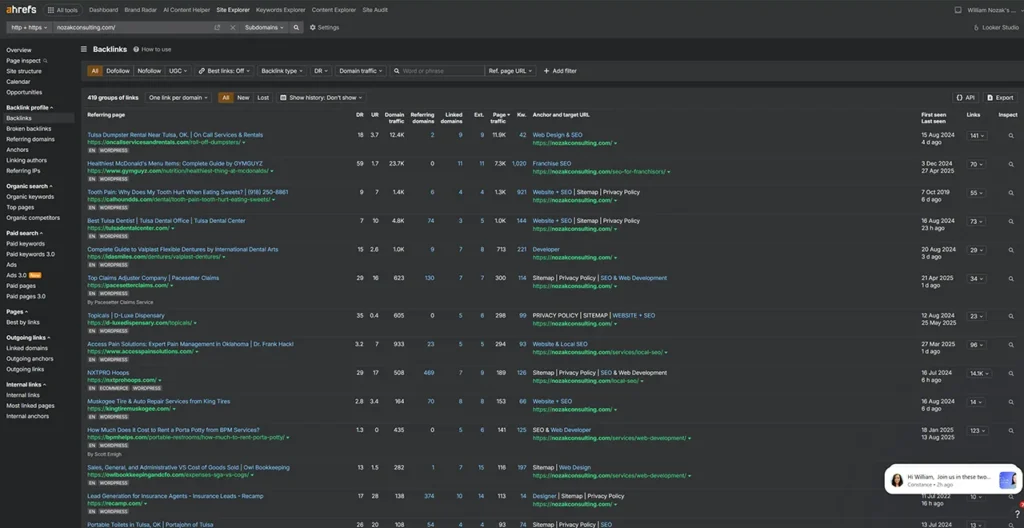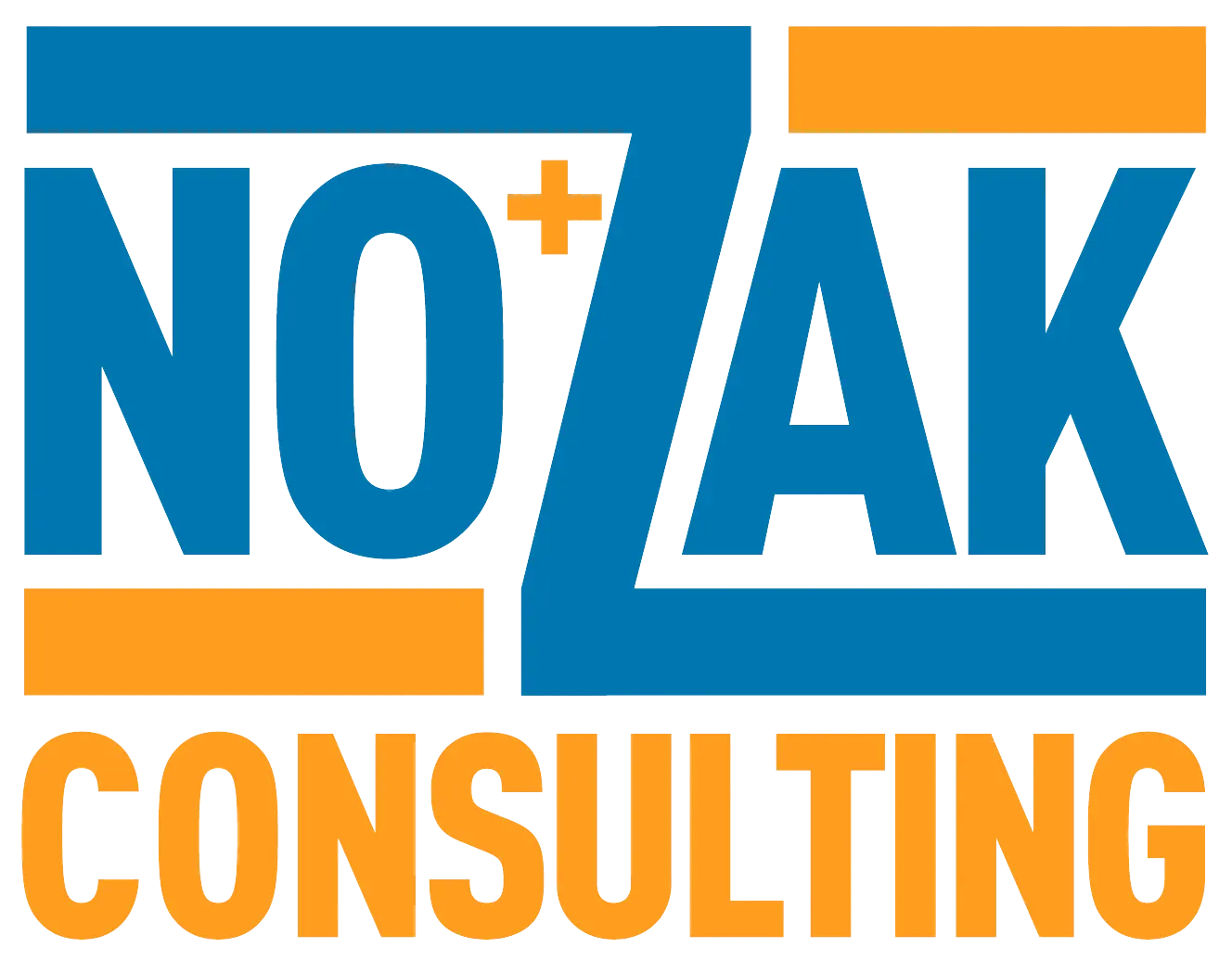Choosing between Ahrefs and SEMrush feels like picking sides in the ultimate SEO battle. Both tools dominate the search engine optimization landscape, but they take distinctly different approaches to helping you climb the rankings.
Ahrefs built its reputation on having the industry’s most comprehensive backlink database and powerful crawler technology, while SEMrush positioned itself as an all-in-one marketing platform that extends far beyond SEO into PPC, social media, and content marketing. The question isn’t which tool is objectively better—it’s which one aligns with your specific needs and budget.
Let’s break down everything you need to know about these SEO powerhouses.
Current Pricing Breakdown: What You’ll Actually Pay
The price difference between these platforms can significantly impact your bottom line, especially for growing businesses.
Ahrefs Pricing Plans (2025)
Ahrefs operates on a credit-based pricing model with the following monthly rates:
- Lite Plan: $129/month – 5 projects, 500 monthly credits, essential SEO features
- Standard Plan: $249/month – 20 projects, unlimited credits, advanced analysis
- Advanced Plan: $449/month – 50 projects, unlimited credits, API access
- Enterprise Plan: $1,499/month – 100+ projects, custom solutions, premium support
Annual subscriptions offer discounts on these monthly rates.
SEMrush Pricing Plans (2025)
SEMrush offers three main tiers with monthly pricing:
- Pro Plan: $139.95/month – 5 projects, 500 tracked keywords
- Guru Plan: $249.95/month – 15 projects, 1,500 tracked keywords
- Business Plan: $499.95/month – 40 projects, 5,000 tracked keywords
- Enterprise: Custom pricing for large organizations
Annual subscriptions offer discounts on these monthly rates.
The monthly pricing comparison reveals that Ahrefs is actually more competitively priced at the entry and mid-tier levels when comparing month-to-month rates. Ahrefs Lite ($129) costs less than SEMrush Pro ($139.95), and Ahrefs Standard ($249) is virtually identical to SEMrush Guru ($249.95). Both platforms offer annual discounts that can substantially reduce costs for businesses willing to commit to longer contracts.
The Great Database Debate: Size vs. Quality
Database size often becomes the headline comparison, but the reality is more nuanced than raw numbers suggest.
Keyword Research Capabilities
SEMrush boasts 27.3 billion keywords across 142 locations, with 3.7 billion specifically for the USA, while Ahrefs counters with 28.7 billion keywords across 217 locations but only 2.2 billion for the USA. This difference matters more than you might think.
If you’re targeting American audiences, SEMrush gives you significantly more keyword opportunities to explore. The tool also provides deeper keyword insights, including search intent analysis, SERP features, and competitive density metrics that Ahrefs doesn’t match.

Ahrefs brings something unique to keyword research: traffic potential calculations that account for Google’s tendency to “steal” clicks through featured snippets and ads. This metric often proves more accurate than traditional search volume estimates.
However, it’s crucial to understand that Ahrefs operates on a credit-based system where most tools consume monthly credits when accessing reports and requesting new data. The Lite plan provides 500 credits monthly, while higher plans offer unlimited credits. This system is different from SEMrush’s straightforward flat-rate approach where you pay a set monthly fee regardless of usage within the plan limits.
Backlink Analysis: The Core Differentiator

Backlink analysis represents Ahrefs’ strongest competitive advantage. SEMrush claims a larger backlink index with 43 trillion backlinks updating daily, compared to Ahrefs’ 30.6 trillion backlinks. Yet size doesn’t tell the complete story.
Ahrefs updates their backlink index every 15 minutes and stores historical data for 35 trillion external backlinks. This frequent updating and historical depth often translates to more actionable insights for link building campaigns.
Ahrefs also provides unique features like backlink traffic analysis, showing which referring domains actually drive meaningful traffic. This intelligence helps prioritize outreach efforts more effectively.
Feature Comparison: Depth vs. Breadth
The philosophical difference between these platforms becomes clearest when examining their feature sets.
Technical SEO and Site Auditing
SEMrush takes the lead in technical SEO features with more robust site audit capabilities that better prioritize issues requiring immediate attention. The platform excels at identifying critical technical problems and providing clear remediation steps.
Ahrefs recently added Structure Explorer to visualize site architecture depth, but SEMrush maintains superiority in comprehensive technical analysis. For businesses dealing with complex technical SEO challenges, this difference can be decisive.
Content Marketing Tools
SEMrush treats content marketing as a first-class citizen with dedicated workflows for content planning, creation, and optimization. The platform includes AI-powered content suggestions, editorial calendars, and performance tracking across multiple content types.
Ahrefs approaches content differently, focusing on Content Explorer for discovering high-performing content in your niche and analyzing competitor content strategies. Their approach emphasizes research over creation, making it ideal for content strategists who prefer external tools for actual content production.
Rank Tracking and Monitoring
Both platforms offer solid rank tracking, but with different strengths. SEMrush provides better local tracking capabilities at the city level and more comprehensive visibility scoring, while Ahrefs offers cleaner visualization with separate desktop and mobile data presentation.
The frequency difference matters for active campaigns. SEMrush updates rankings daily across all plans, while Ahrefs historically limited daily updates to higher-tier plans.
See related: Ahrefs Introducing a New Ahrefs’ Domain Rating Calculation
Beyond SEO: The All-in-One Factor
SEMrush’s broader marketing toolkit becomes valuable for teams managing multiple channels. The platform includes:
- PPC campaign management and optimization
- Social media scheduling and analytics
- Local SEO tools for multi-location businesses
- Content marketing workflows
- Market research capabilities
Ahrefs remains laser-focused on SEO and organic growth. This specialization means deeper functionality in core SEO areas but requires additional tools for comprehensive marketing campaigns.
User Experience and Learning Curve
Ahrefs is simple enough for SEO beginners with a clean and easy-to-understand user interface. The platform prioritizes clarity and presents complex data in digestible formats.
SEMrush can be overwhelming for beginners with its extensive data presentation that might seem like a labyrinth for those new to SEO. However, this complexity comes with more comprehensive analysis options.
The learning curve difference affects team adoption. Smaller teams often prefer Ahrefs’ streamlined approach, while larger organizations benefit from SEMrush’s extensive capabilities once team members overcome the initial complexity.
Making the Right Choice for Your Business
Your decision should align with your specific circumstances and growth plans.
Choose Ahrefs if you:
- Focus primarily on organic SEO and content marketing
- Need the most accurate backlink data for link building
- Prefer a cleaner, more intuitive interface
- Want powerful competitor content analysis
- Work with smaller teams or as a solo practitioner
- Are comfortable with a credit-based usage model
See related: How to Use Ahrefs.
Choose SEMrush if you:
- Manage multi-channel marketing campaigns
- Need comprehensive keyword research for US audiences
- Require robust technical SEO auditing
- Want all-in-one marketing platform capabilities
- Prefer flat-rate pricing with clear monthly limits
The Verdict: Context Determines the Winner
SEMrush is typically considered the better tool because of its larger database, broader features for advertising and social media marketing, and pricing model. However, this generalizes a decision that should be highly specific to your situation.
For pure SEO focus with emphasis on backlink analysis and content research, Ahrefs delivers superior depth. For businesses requiring broader marketing functionality or extensive keyword research in competitive US markets, SEMrush provides better overall value.
Understanding the different pricing models – Ahrefs’ credit-based system versus SEMrush’s flat-rate approach – should factor into your decision based on your usage patterns and budget planning preferences.
See related: 4 Semrush Alternatives For Digital Marketers.
Ready to Accelerate Your SEO Success?
Choosing the right SEO tool is just the beginning. The real challenge lies in implementing effective strategies that drive measurable results for your business.
At Nozak Consulting, we’ve helped over 500 businesses leverage SEO tools like Ahrefs and SEMrush to dramatically increase their online visibility and revenue. Our team knows how to extract maximum value from whichever platform aligns with your goals.
Whether you choose Ahrefs, SEMrush, or need expert guidance on making the right decision, we’re here to help you turn SEO data into growth. Contact Nozak Consulting today to schedule a strategic consultation and discover how the right SEO approach can transform your business.
Schedule Your SEO Strategy Call →
Just getting started with SEO and need something free? Check out these Free SEO Tools to Elevate Your Marketing.
